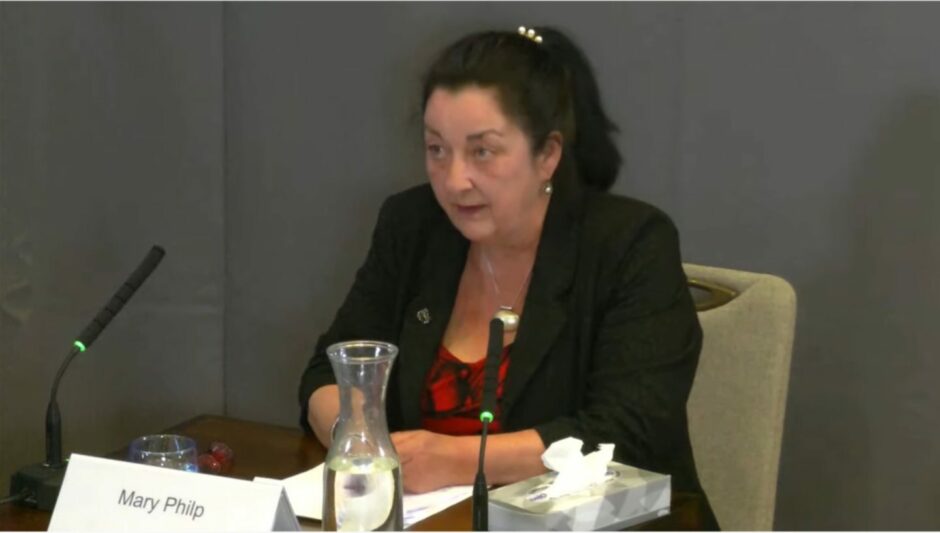Ahead of a Dundee University discussion, Michael Alexander speaks to one of the expert speakers about the future of digital evidence and automated AI systems.
It has been described as “the most widespread miscarriage of justice in UK history”.
Between 2000 and 2014, more than 700 Post Office branch managers, including a number in Scotland, were wrongly accused of theft, fraud and false accounting due to a flaw in the Horizon accounting IT system.
A public inquiry, which launched in February, is hearing how lives and reputations were ruined, families torn apart and families made homeless or destitute.
The inquiry, led by Sir Wyn Williams and expected to last the rest of the year, is looking at whether the Post Office knew about faults in the IT system and is asking how staff shouldered the blame.
It’s also examining whether staff at the software firm which developed the Horizon software knew the system had flaws while data from it was used in court to convict sub-postmasters.
Delivering answers
But what can Scotland’s legal system learn from the Post Office Horizon IT miscarriage of justice?
How might digital evidence related to automated and artificial intelligence systems be considered and managed in future?
The questions will be considered when Dundee University’s Leverhulme Research Centre for Forensic Science (LRCFS) hosts a relaunched Future of Law Dundee event.
On Tuesday September 20, a panel of experts will discuss the Horizon scandal and what the legal systems, forensic experts and others can learn from the issues which arose around digital evidence.
The public event will be moderated by Professor Angela Daly of the University of Dundee Leverhulme Research Centre for Forensic Science.
Speakers will be James Christie – independent software testing consultant; Paul Marshall – barrister; Dr Andrew Tickell – senior lecturer in law at Glasgow Caledonian University and Dr Rachel Menzies – senior lecturer in computing at the University of Dundee.
Expert opinion: Dr Andrew Tickell
In an interview with The Courier, Dr Tickell explained how issues of disclosure, IT literacy and legal presumptions about IT systems are some of the broader digital evidence problems raised by the Post Office Horizon scandal.
The discussion will also consider divergences between the jurisdictions of Scotland, and England and Wales.
While the Horizon scandal has made headlines, however, Dr Tickell doesn’t think it’s attracted the media coverage it deserves.
“You would have thought that when you are talking about the biggest widespread miscarriage of justice in British history effecting hundreds of people who are entirely innocent of any crime, that it hasn’t got more traction,” he said.
“The core of it goes back to the computing system that was introduced by the Post Office to digitise its operations and that was installed across all different branches called Horizon.
“Horizon was meant to mitigate against fraud by postmasters and sub postmasters through double entry accounting – a way of holding them to account.
“The problem, however, was that Horizon was characterised by system glitches, errors, failures and mistakes – most of which appear to have recorded that sub postmasters owed money they didn’t owe.
“An IT glitch in itself is not necessarily going to lead to a miscarriage of justice.
“However, in these cases of which we know there are least 555 if not potentially more than that across the UK, the Post Office put its faith in the Horizon data to demand payback of ‘missing money’”.
‘Shocking’ human impact
Dr Tickell said the human impact of the scandal had been “shocking”.
In England and Wales, where the Post Office had the power to prosecute its own staff, they denied the failure of those systems and in some cases people were jailed for stealing money they did not take.
Other people ended their lives in the context of allegations being made against them.
When people gave evidence to the Scottish end of the public inquiry earlier this year, heart breaking stories were told of the devastating financial and mental health impacts on people whose lives were crushed after being wrongly accused.
When people think of forensics, they often think about CSI-type fingerprinting.
What’s at the core of this Dundee discussion is how miscarriages of justice could become more frequent if a “misplaced sense of confidence” is put in digital systems and digital data in future.
Misplaced confidence in IT?
“From my perspective, it’s to bring a broader sense of how this fits in to what we know about miscarriages of justice,” he said.
“If you think about the main things that lead to miscarriages of justice, you probably think about things like false confessions, bad eye witness evidence, police informers, tunnel vision – all these things do drive miscarriages of justice.
“But this misplaced confidence in the infallibility of computer systems and the huge difficulty in challenging evidence in court about this means, that if you assume that any system built by human beings or involving human beings is infallible – if you don’t criticise the results that come out of those systems – you are guaranteed, before long, to convict someone wrongly of a crime they didn’t commit.
“You can see it with finger printing evidence. You can see it with DNA.
“So often these forms of evidence are much more two edged than CSI culture really recognises.”
Unanswered questions
Dr Tickell said one of the key unanswered questions is “who knew what when” about the systems failing.
There was plenty of evidence that the Post Office and their computer contractors were aware of the problems with Horizon, he said.
Meanwhile, at the same time, a different part of the Post Office was prosecuting people for theft and fraud.
“No one from the Post Office has been held accountable for what could amount to attempting to pervert the course of justice in terms of failure to disclose evidence which undermines their own case,” he added.
“Partly that’s a more traditional story of a secret and self-interested operation – potentially for commercial reasons and its own commercial survival – really not playing fair with basic elements of the criminal justice system.
“Otherwise it does prompt that wider reflection on not treating forensic computer evidence as if it is not characterised by having any mistakes.
“No one working in the field of programming would ever think there’s an infallible computer system because they spend their time trying to fix it.
“But if you are not one of those people who understand coding systems. If you don’t build complex bureaucratic online systems like Horizon, then it’s very difficult to critique and challenge those things.”
Scotland-England differences
Another question, said Dr Tickell, is the “fascinating” difference in approach by the Scottish and English legal systems.
“One of the most important things about this is, in England and Wales, the Post Office could prosecute as a private prosecutor,” he said.
“But they did not have that right in Scotland, so if anyone was prosecuted using Horizon data, then it was the Crown Office and Procurator Fiscal service which did it based on information that would have been passed by the Post Office.
“Now my question to the Crown Office was how many postmasters were prosecuted?
“They told me that basically the FOI I asked was too expensive to answer so they were not going to do so.
“But one thing that struck me going along to Sir Wyn’s inquiry in Glasgow was that none of the postmasters who gave evidence there were prosecuted with any crime at all.
“They didn’t encounter the police for the main part, they weren’t charged, they weren’t accused.
“It’s not really clear to what extent or how many people may have been prosecuted in Scotland for this.
“But we know a number of postmasters were given ‘threats and menaces’ and turned over 10s of thousands of pounds to the Post Office in order to try and keep their livelihoods.
“We know that the Scottish Criminal Cases Review Commission which is responsible for taking a look at arguable miscarriages of justice announced a couple of years ago they’d written to 73 people that they think might have been affected.
“I don’t know how they identified those 73 people.
“But we do know there are currently eight cases which are under active review which were due to come to a conclusion this summer.
“It’s clear there are some examples of Scottish postmasters facing prosecution, but this is another interesting thing about this case.
“You often think what is a miscarriage of justice? You think about wrongful convictions.
“Actually it’s much bigger than that. A lot of folk who had their lives ruined didn’t go anywhere near a criminal court and their lives were still wrecked by the Post Office.”
How to get free tickets
*The free in-person/hybrid Post Office Horizon event takes place on Tuesday September 20 from 5pm to 7pm at the Dalhousie Building, Old Hawkhill, Dundee.
Tickets are available via https://www.eventbrite.co.uk/e/future-of-law-dundee-hybrid-event-tickets-404654471417
*A separate fully virtual event about journalism and cybersecurity takes place on Wednesday September 29 from 10am to 12 noon.
Tickets for this can be found at https://www.eventbrite.co.uk/e/cybersecurity-and-journalism-workshop-tickets-404531794487
















